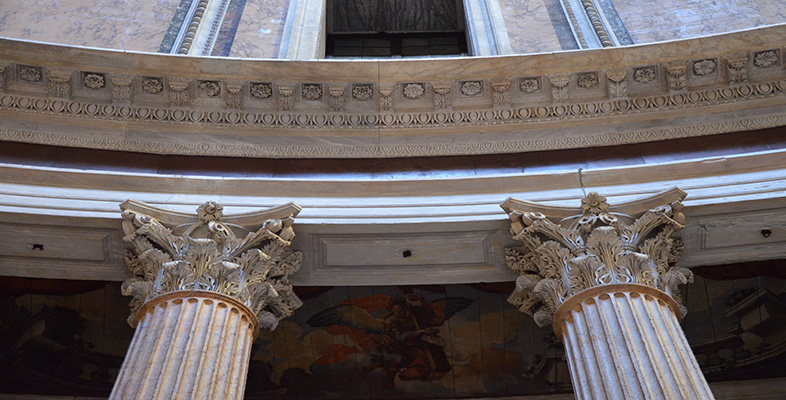Primary Source 4 Hadrian’s speech on Matidia
Source: Jones, C.P. (2004) ‘A speech of the emperor Hadrian’, The Classical Quarterly, vol. 54, no. 1, pp. 268–9.
This is an inscribed record of a speech given by Hadrian about Matidia following her death. The inscription was recorded in the sixteenth century and was subsequently lost. It was found in Tibur (Italy), and may have been inscribed onto a statue base, though this is not certain. The speech may have originally been spoken, by Hadrian, in the Senate, to support the consecration of Matidia. The inscription was damaged when it was copied and thus the speech is incomplete with missing words and lines. Suggestions to fill these gaps are here placed inside square brackets. There are, however, still some uncertainties as to the full content. For the purposes of this exercise don’t worry too much about these lacunae. Focus on the overall message of the speech and how Hadrian characterises Matidia.
Note: the restored words are in square brackets.
[p. 268] Lines 7–10. [She followed her uncle] from [his obtaining] the position of emperor and right up to that [last illness] by which he met his death, as his companion and intimate, revering him like a daughter, in her affection doing everything [for him, and] was [never] seen [without him].
Lines 11–20. [But why should I say more] about the character of my mother-in-law? For how could it come about [that …] gravity of [----] woman at all, [and not?] … approve most highly? I would describe [calmly and?] and in detail all that [I felt?] if I were not so very overcome by my present grief. [As it is, however,] I would wish [to do] and say only what I am able, regretting [that I cannot do something else that should be] either worthy of praises or [adequate] for my sorrow. [For still] there is the most grievous image of my mother-in-law declining [before my eyes, my] ears are even now echoing with the lamentations of my [women relatives].
Lines 21–33. Therefore relieve my mind’s [grief], and [remember] what you know very well about [her] character, even if what is said will be known rather than new. [She lived] as one most dear to her husband, after him most chaste through a very long widowhood (despite being) in the prime of her life and with the greatest physical beauty, most obedient to her mother, herself a most indulgent mother, a most dutiful relative, [helping all], gloomy towards none, and as far as I myself am concerned, [p. 269] [previously (she was, sc.) of] extraordinary concern, (and) later of such great modesty that she never asked anything of me, and did not ask for many things which I would rather have wished to be asked for. Of the [highest] goodwill amid my [hopes], after offering very many and very prolonged prayers, she saw [me] such as she had prayed. She preferred to rejoice in my station rather than to make use of it. [As the niece of my deified father] by blood, by adoption [placed in the relation] of cousin [to me], … uncle … a noble title in accordance with her merits, I ask that you confer upon her the [honour of consecration] …
